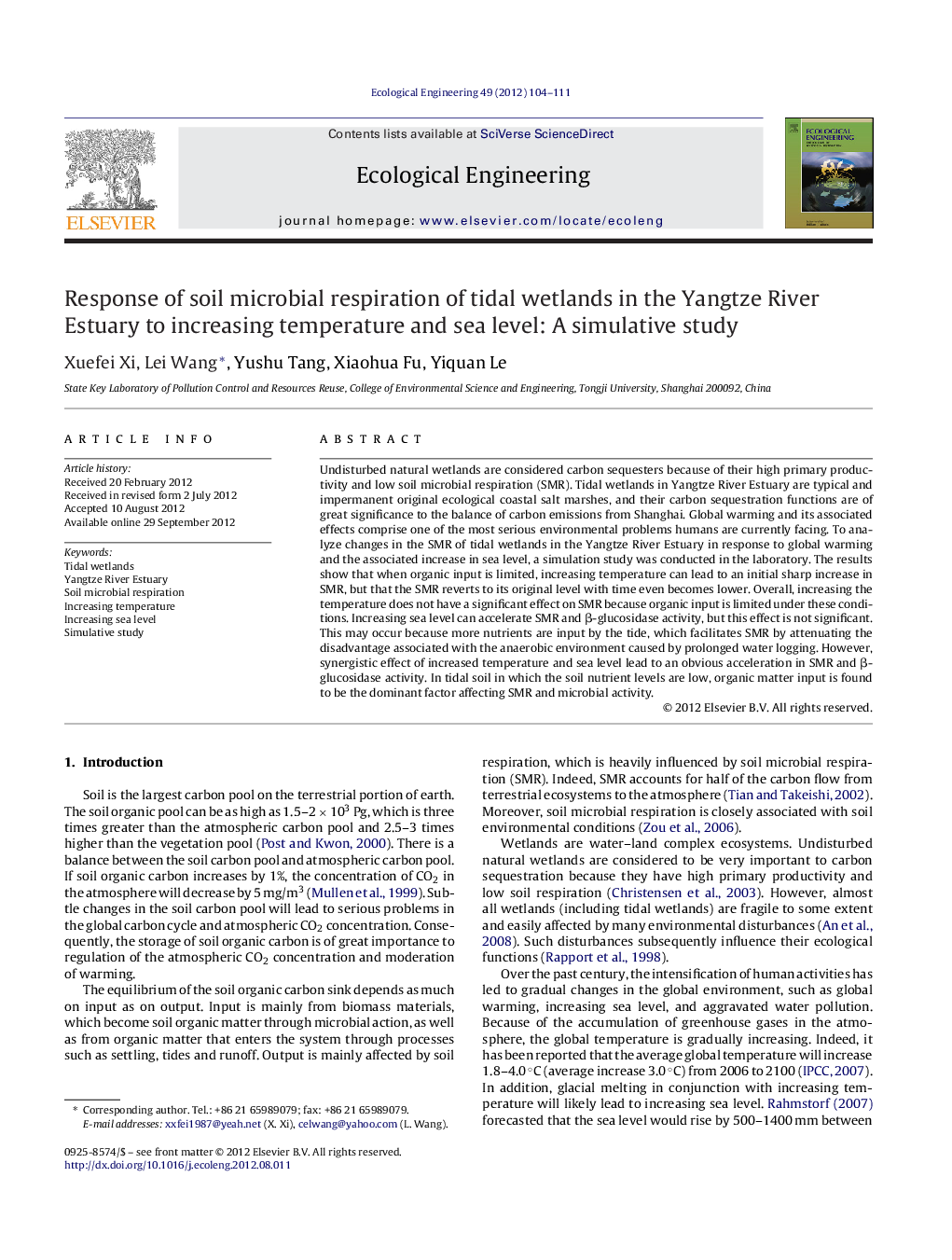| Article ID | Journal | Published Year | Pages | File Type |
|---|---|---|---|---|
| 4389891 | Ecological Engineering | 2012 | 8 Pages |
Undisturbed natural wetlands are considered carbon sequesters because of their high primary productivity and low soil microbial respiration (SMR). Tidal wetlands in Yangtze River Estuary are typical and impermanent original ecological coastal salt marshes, and their carbon sequestration functions are of great significance to the balance of carbon emissions from Shanghai. Global warming and its associated effects comprise one of the most serious environmental problems humans are currently facing. To analyze changes in the SMR of tidal wetlands in the Yangtze River Estuary in response to global warming and the associated increase in sea level, a simulation study was conducted in the laboratory. The results show that when organic input is limited, increasing temperature can lead to an initial sharp increase in SMR, but that the SMR reverts to its original level with time even becomes lower. Overall, increasing the temperature does not have a significant effect on SMR because organic input is limited under these conditions. Increasing sea level can accelerate SMR and β-glucosidase activity, but this effect is not significant. This may occur because more nutrients are input by the tide, which facilitates SMR by attenuating the disadvantage associated with the anaerobic environment caused by prolonged water logging. However, synergistic effect of increased temperature and sea level lead to an obvious acceleration in SMR and β-glucosidase activity. In tidal soil in which the soil nutrient levels are low, organic matter input is found to be the dominant factor affecting SMR and microbial activity.
